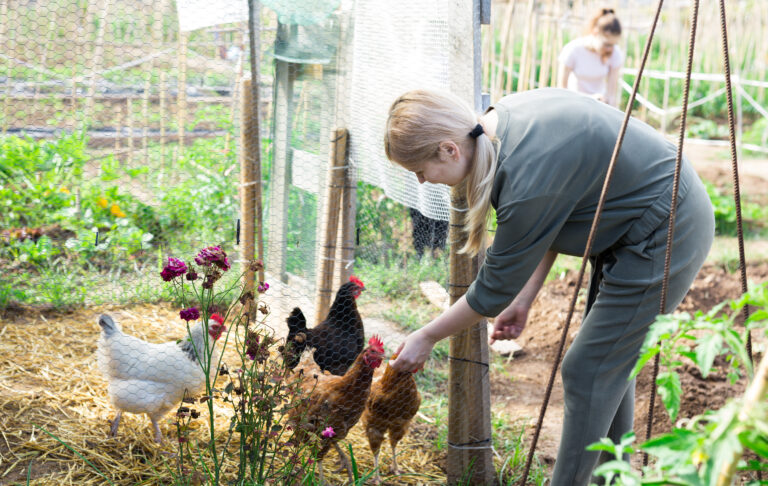I’m considering starting a backyard chicken farm, but I’ve been warned that there could be some disease risks. Is that true?
The short answer: Yes, chickens can carry a number of diseases – even when they look healthy!
The explanation: Raising backyard chickens for their eggs and/or meat is a growing trend in the U.S., with an estimated 10 million Americans keeping backyard flocks in 2023. But the trend is not without risk. Chickens are known for harboring foodborne disease germs such as Salmonella and Campylobacter, to which backyard owners can be exposed due to the chickens’ proximity to the home and likelihood of more intimate handling.
There also have been cases of highly pathogenic avian influenza (HPAI) in backyard flocks. Although HPAI does not generally spread to humans, those who have regular contact are most at risk. So it is important to know the signs of illness in chickens, report any signs to your state agency or veterinarian, and follow their and CDC guidance.
However, even healthy-looking, clean chickens can carry Salmonella and Campylobacter, and people have been infected by simply touching or caring for their chickens. The bacteria can live naturally in their intestines; be carried on their feathers, beaks, and feet, as well as their feces; then be spread throughout the backyard or other areas the chickens live and wander. By handling the chicken or touching a surface where the germs have spread then touching one’s mouth, people can become infected with a serious illness.
Additionally:
- A 2024 Salmonella outbreak linked to backyard poultry flocks led to 109 people sickened, including 33 who have been hospitalized. And 43% of those infected in this outbreak were under 5 years old.
- A recent study from North Carolina State University showed the prevalence of Campylobacter in samples from backyard farms to be 10% higher than those of commercial farms.
- Even poultry that are organically fed can become infected as both Campylobacter and Salmonella can be spread by birds, rodents or others animals, with Salmonella able to survive for at least a year in soil and for months in water and on plants.
This is not to say that homeowners should never have backyard flocks, rather that you should be aware of and protect against the risks. As CDC advises:
- Wash your hands after touching poultry, eggs, or anything in the area they live and roam.
- Supervise children as they are more likely to snuggle and kiss the chickens, then put their hands in their mouths, and they can become very ill.
- Don’t eat or drink around the chickens, as this can spread the germs to your mouth and cause illness.
- Call your healthcare provider right away if you or your child experience any severe symptoms.
TAG can simplify your food safety and quality practices. Contact us for information!





